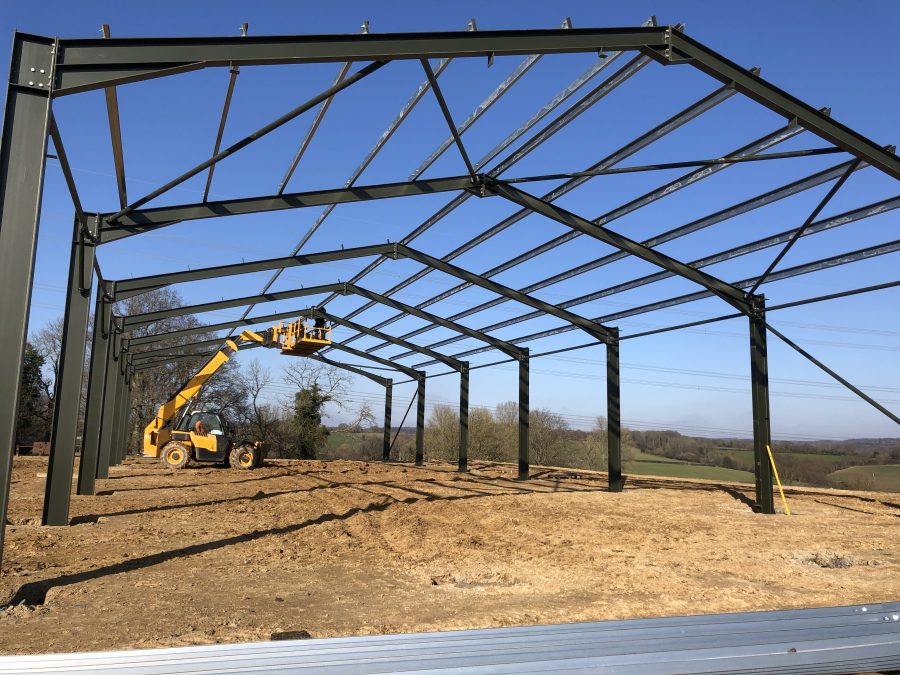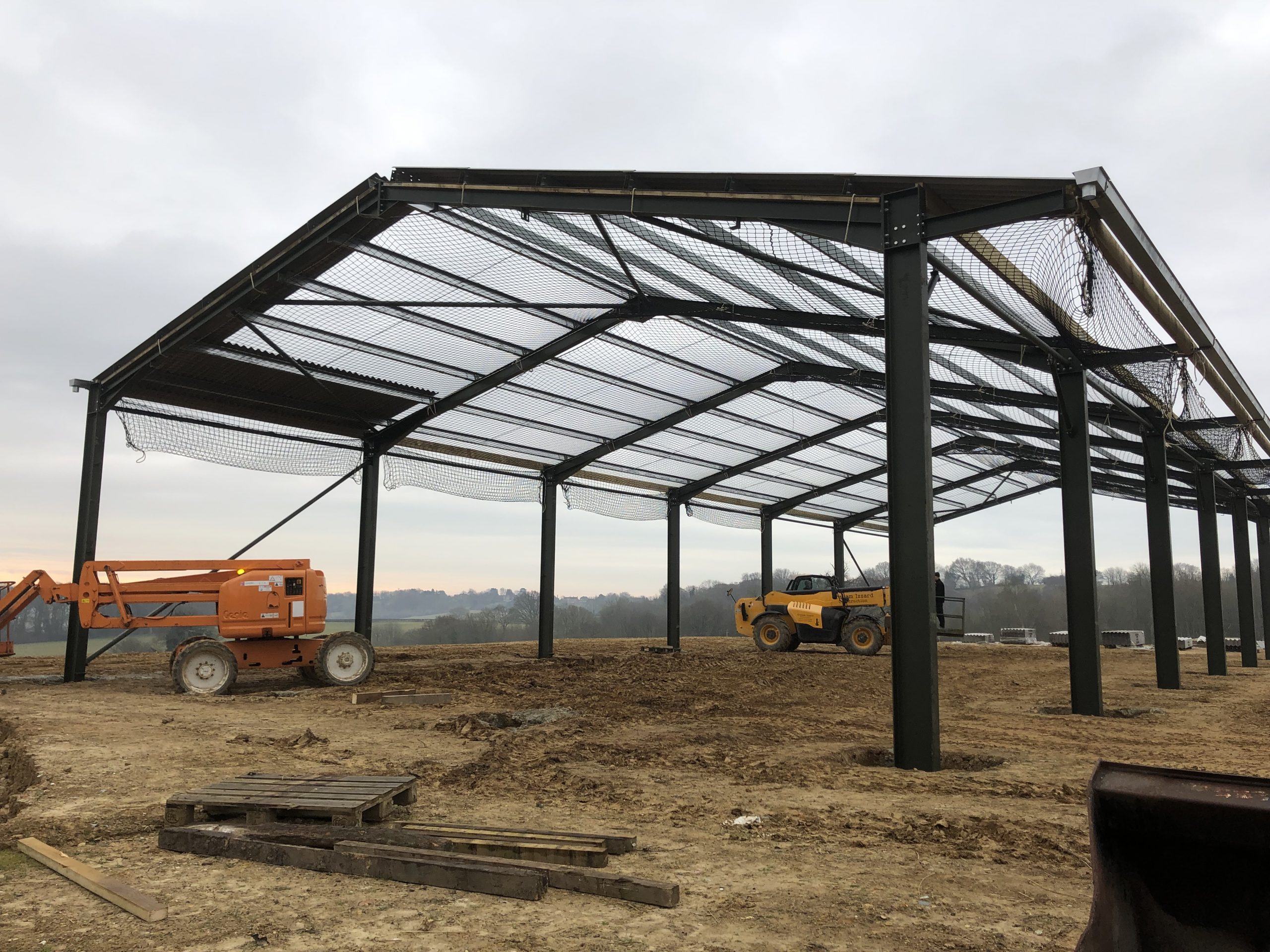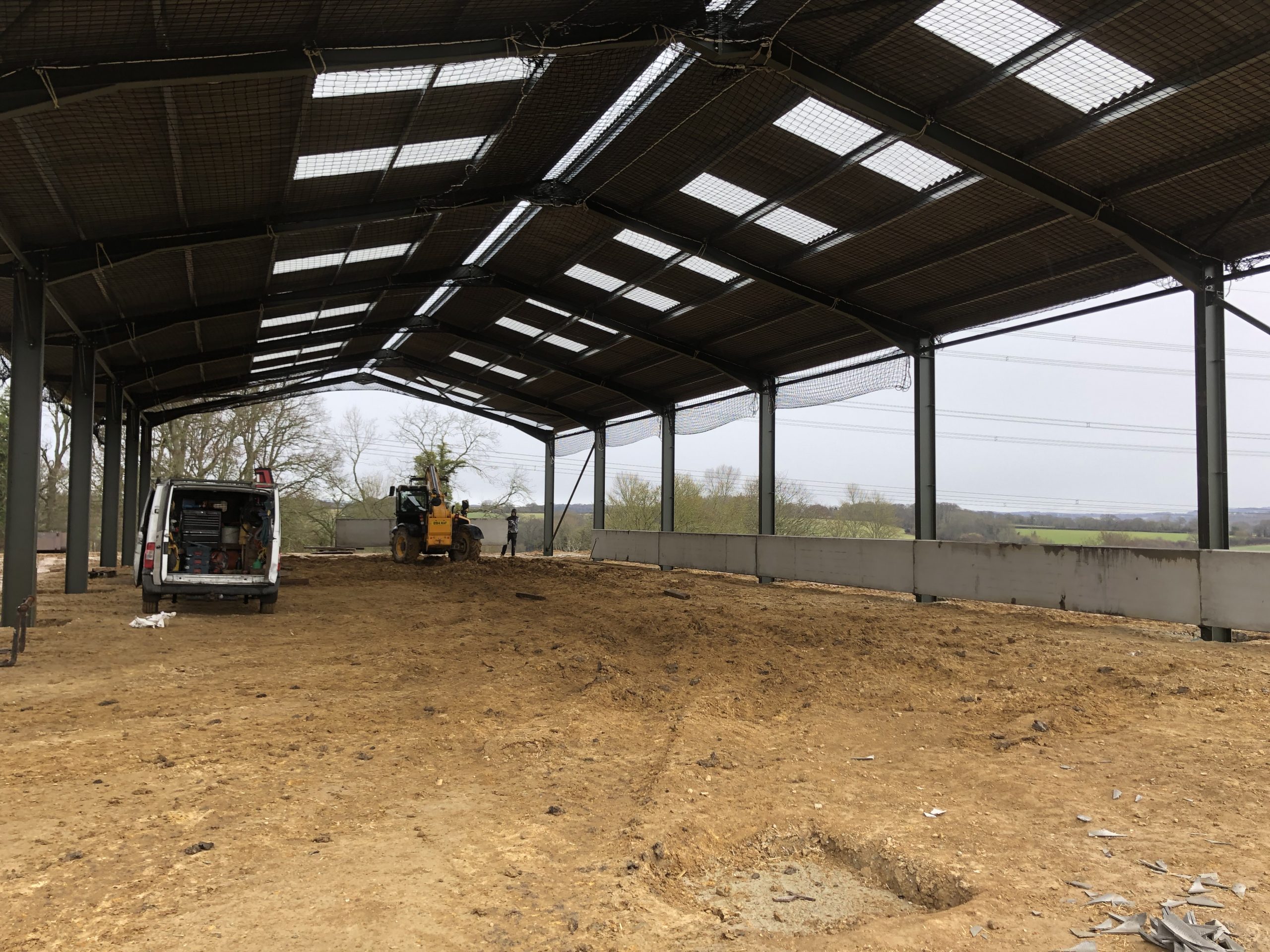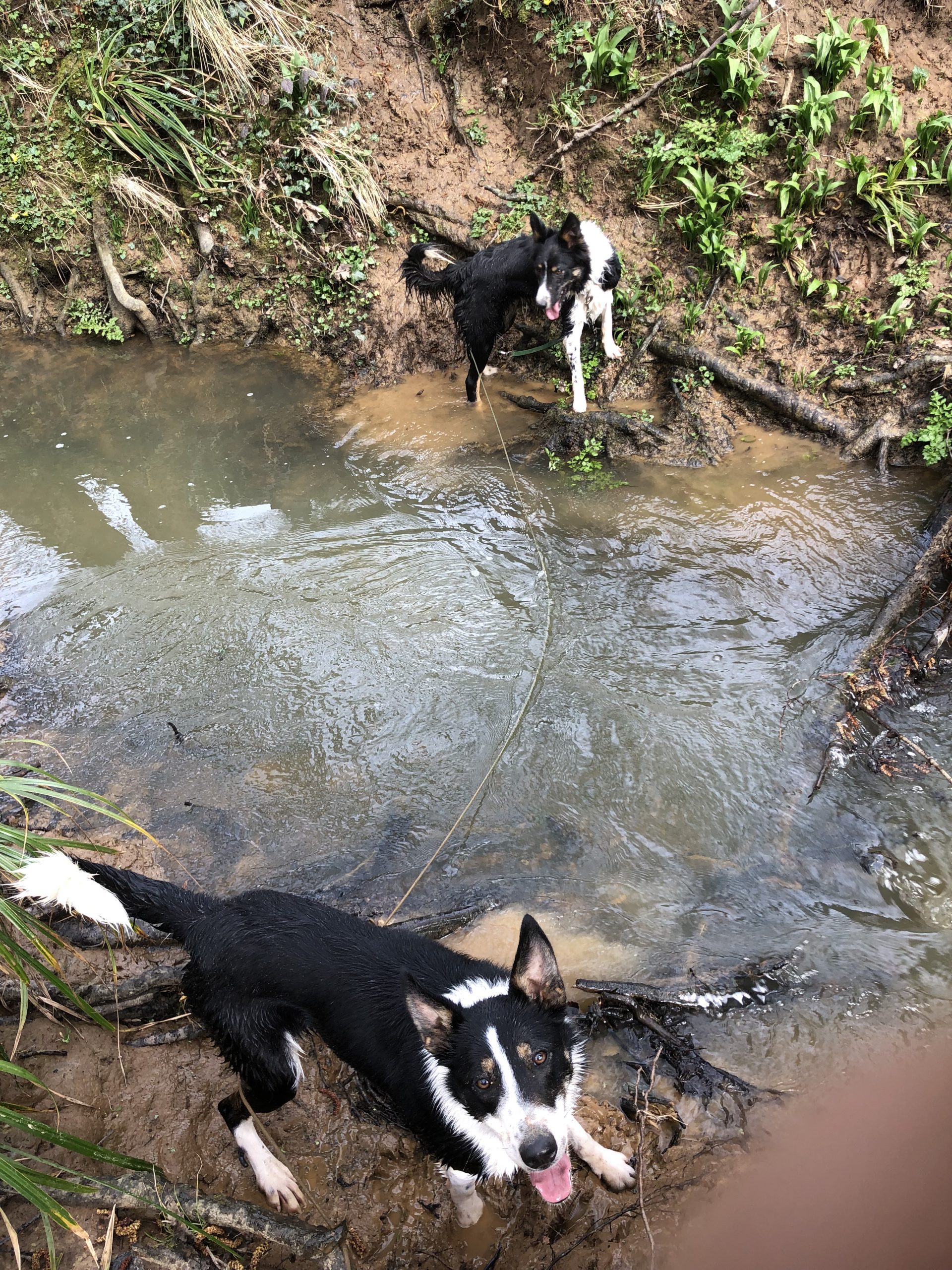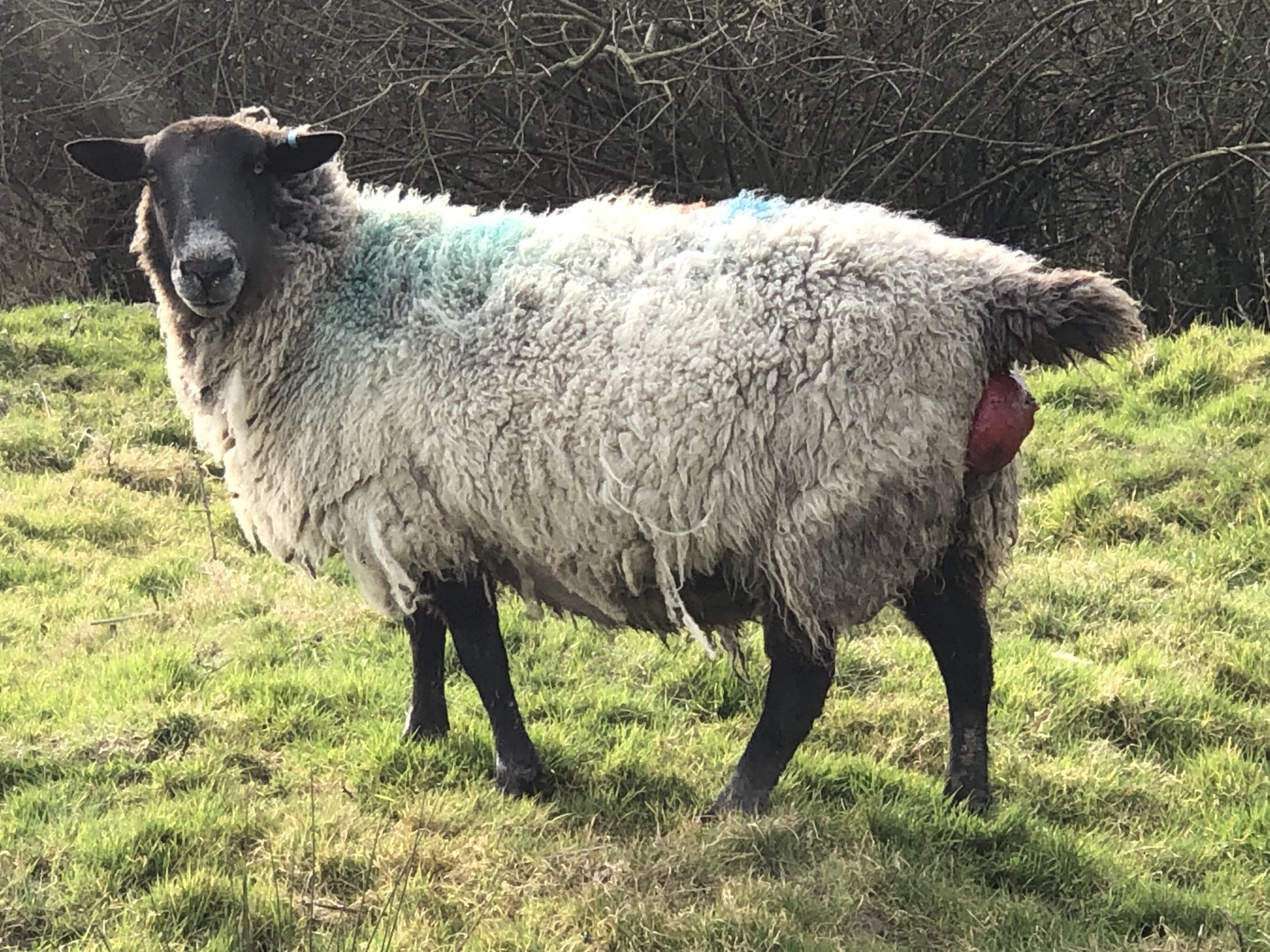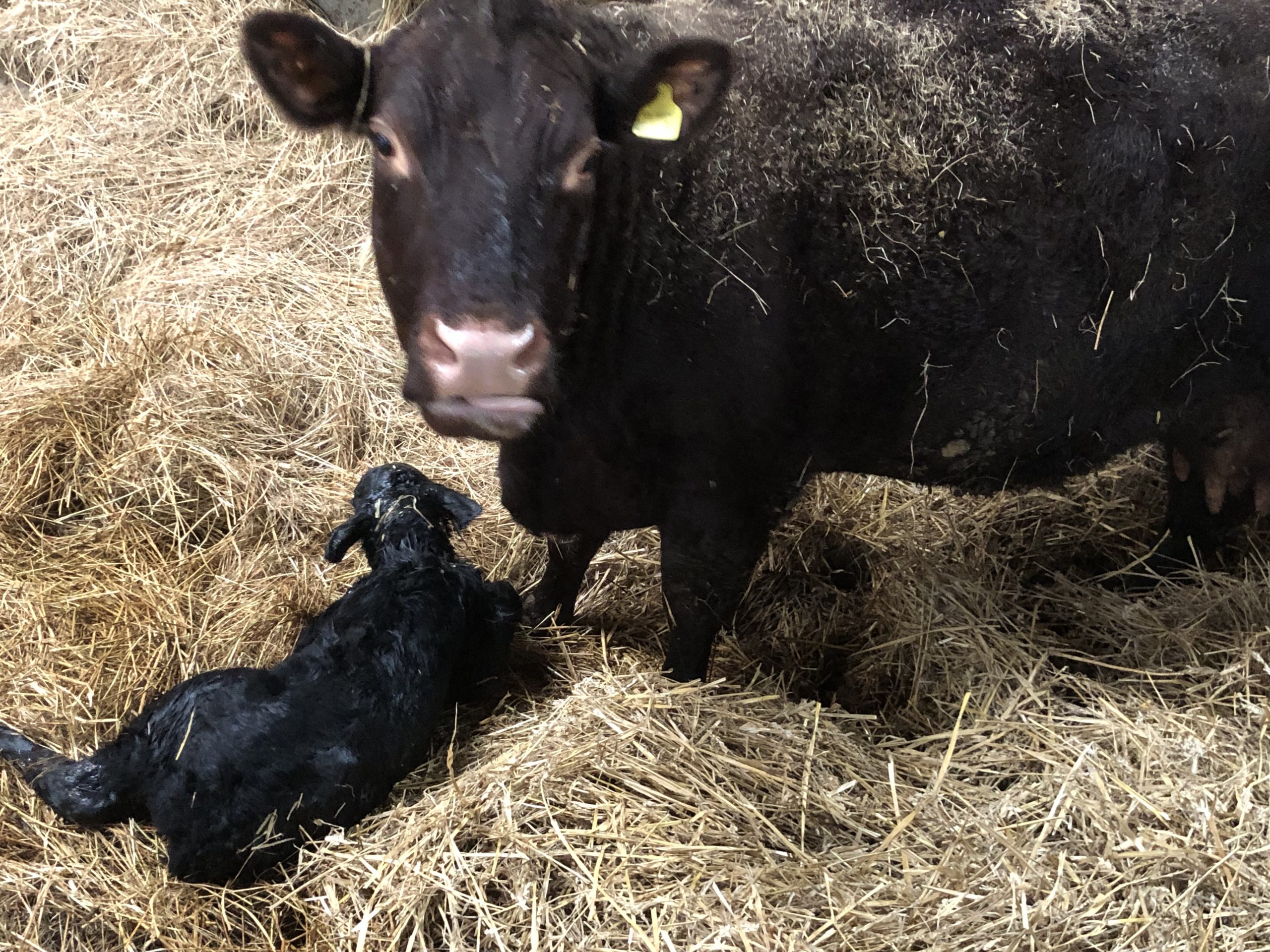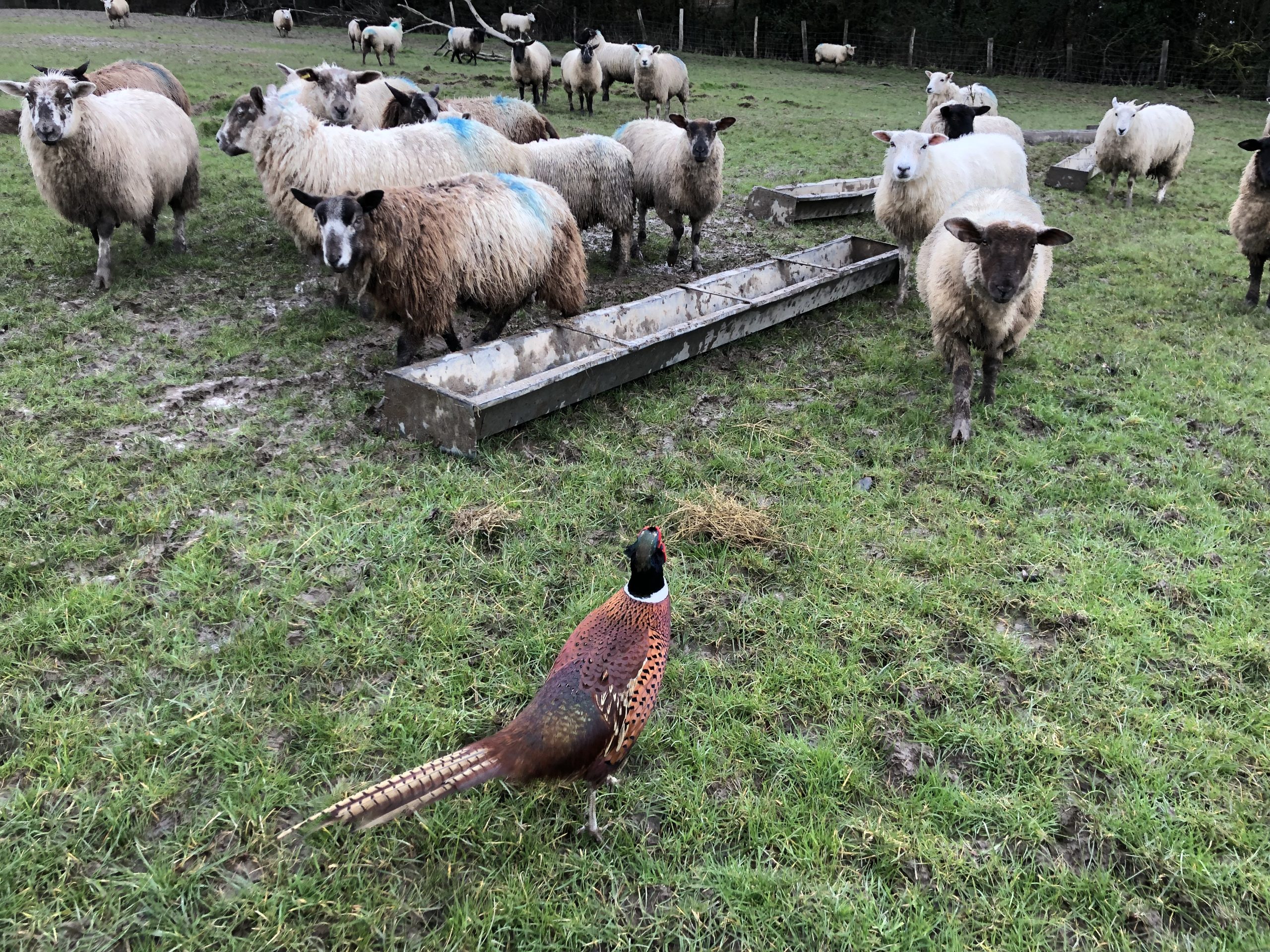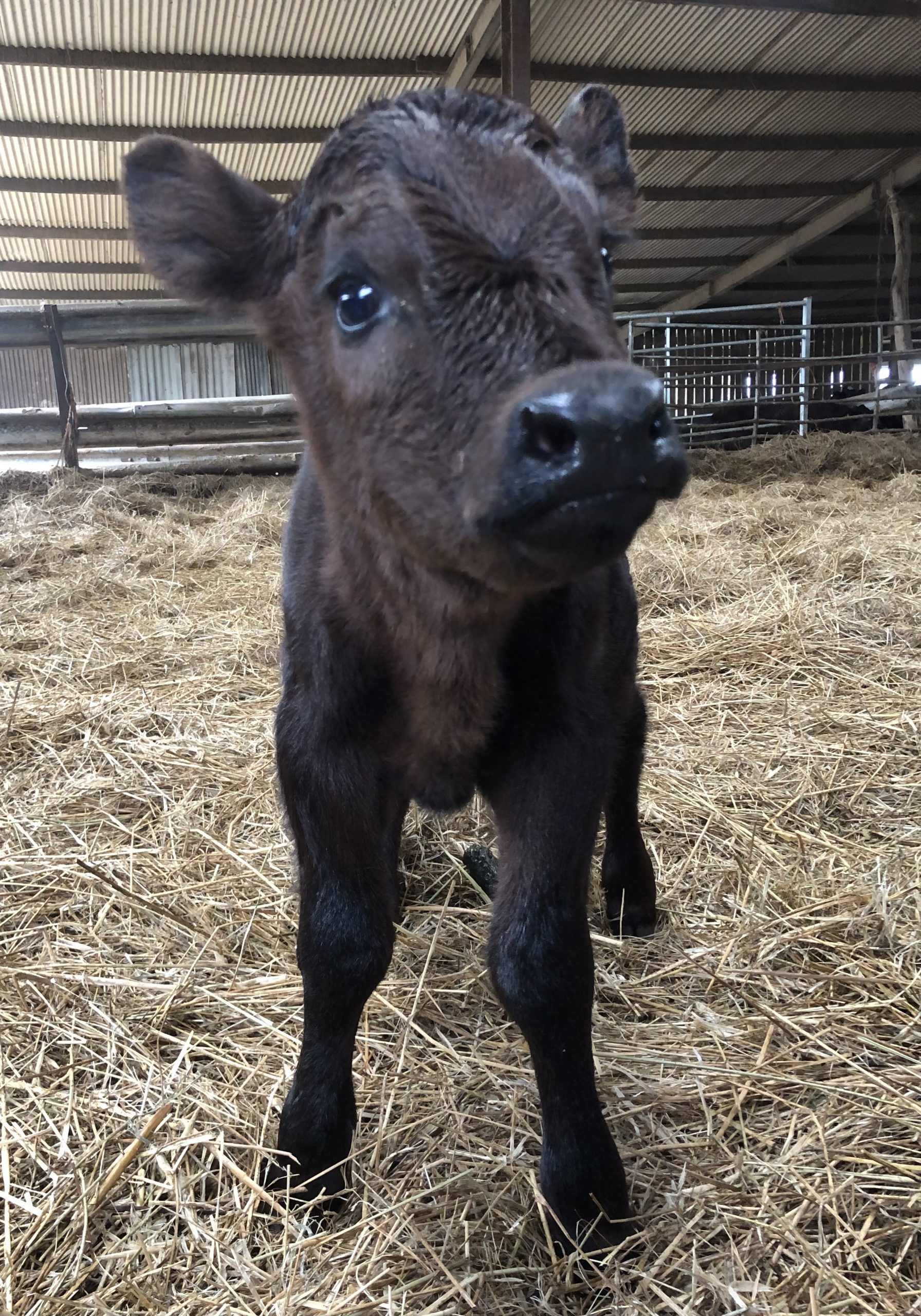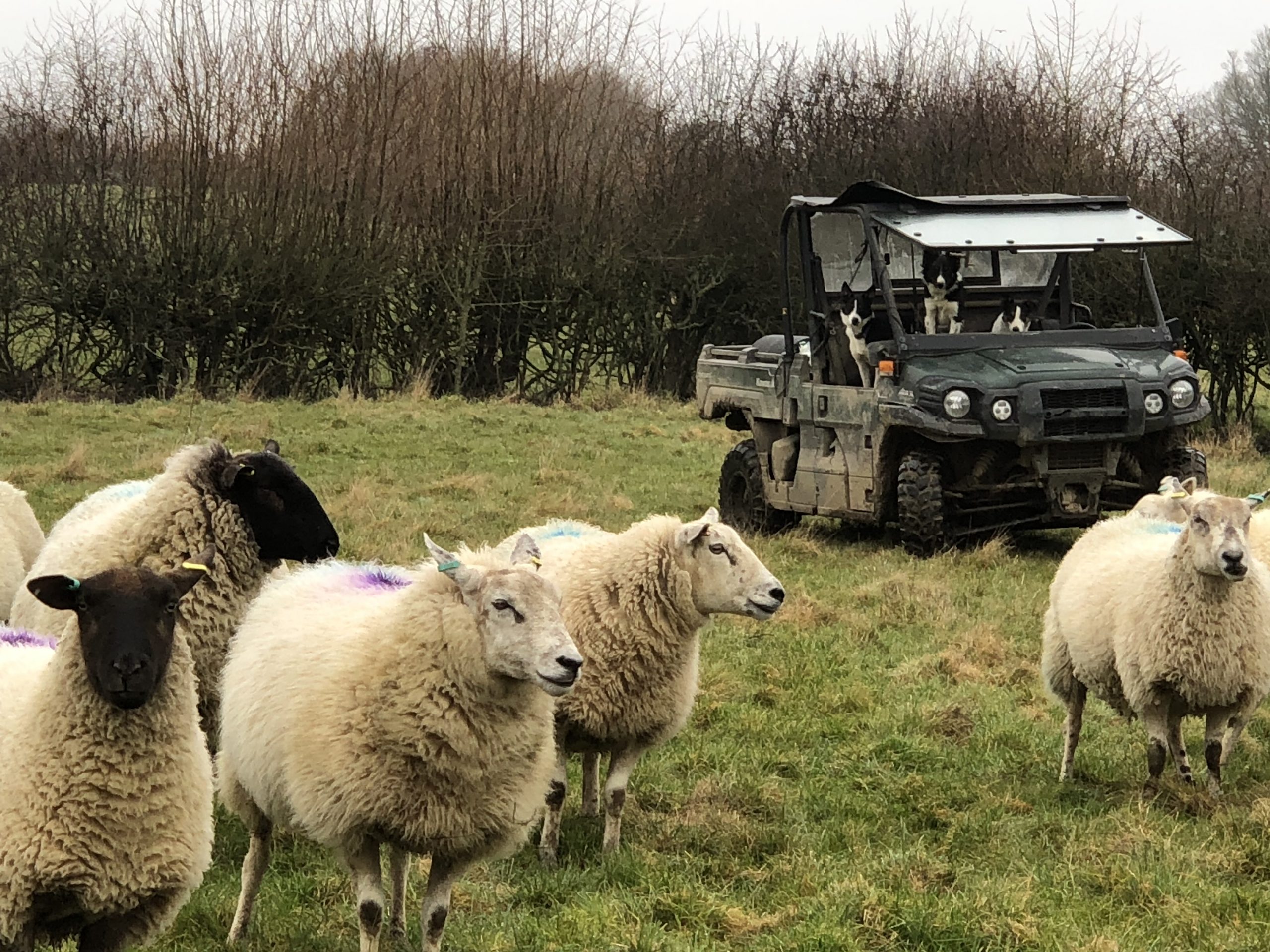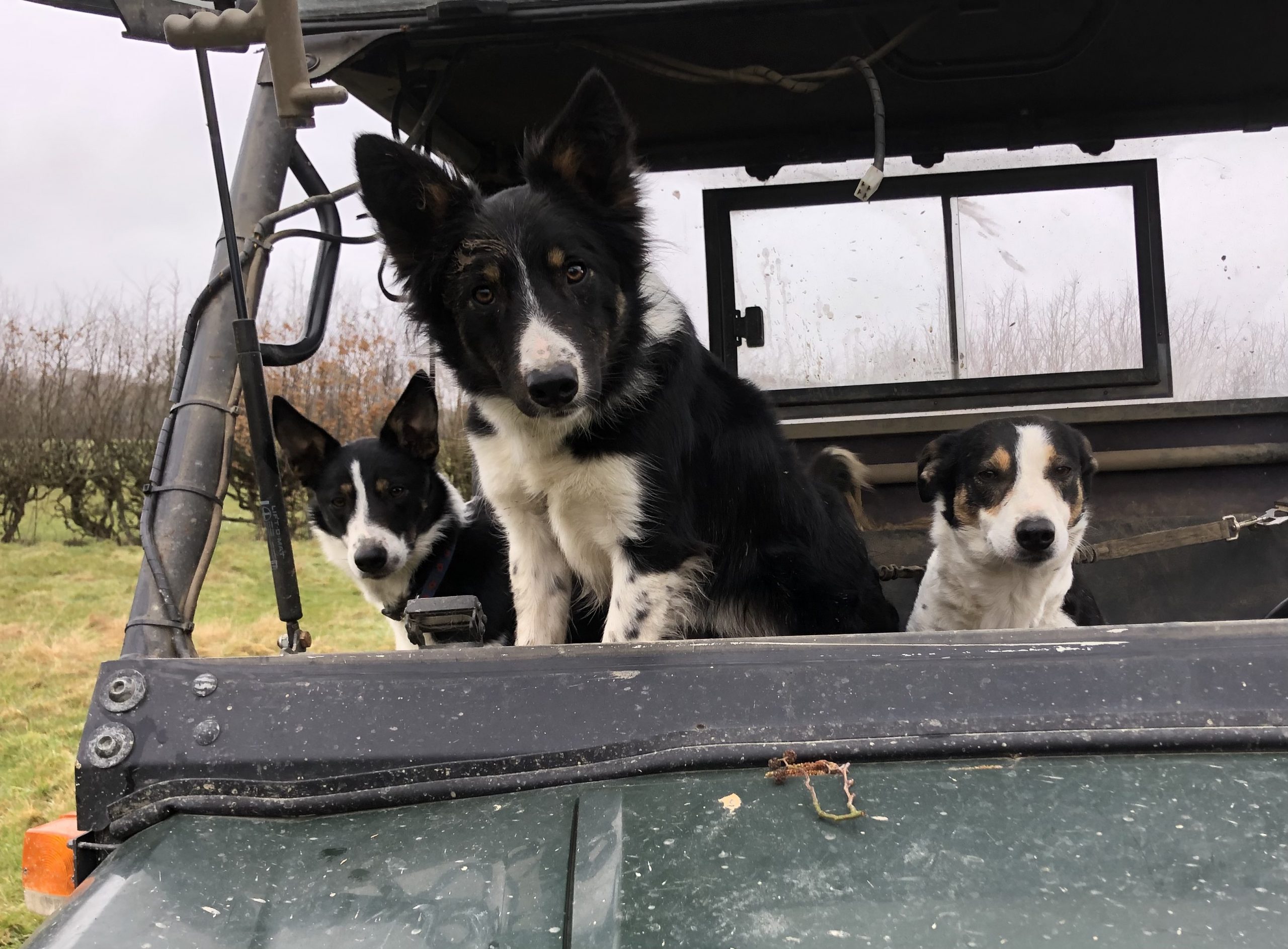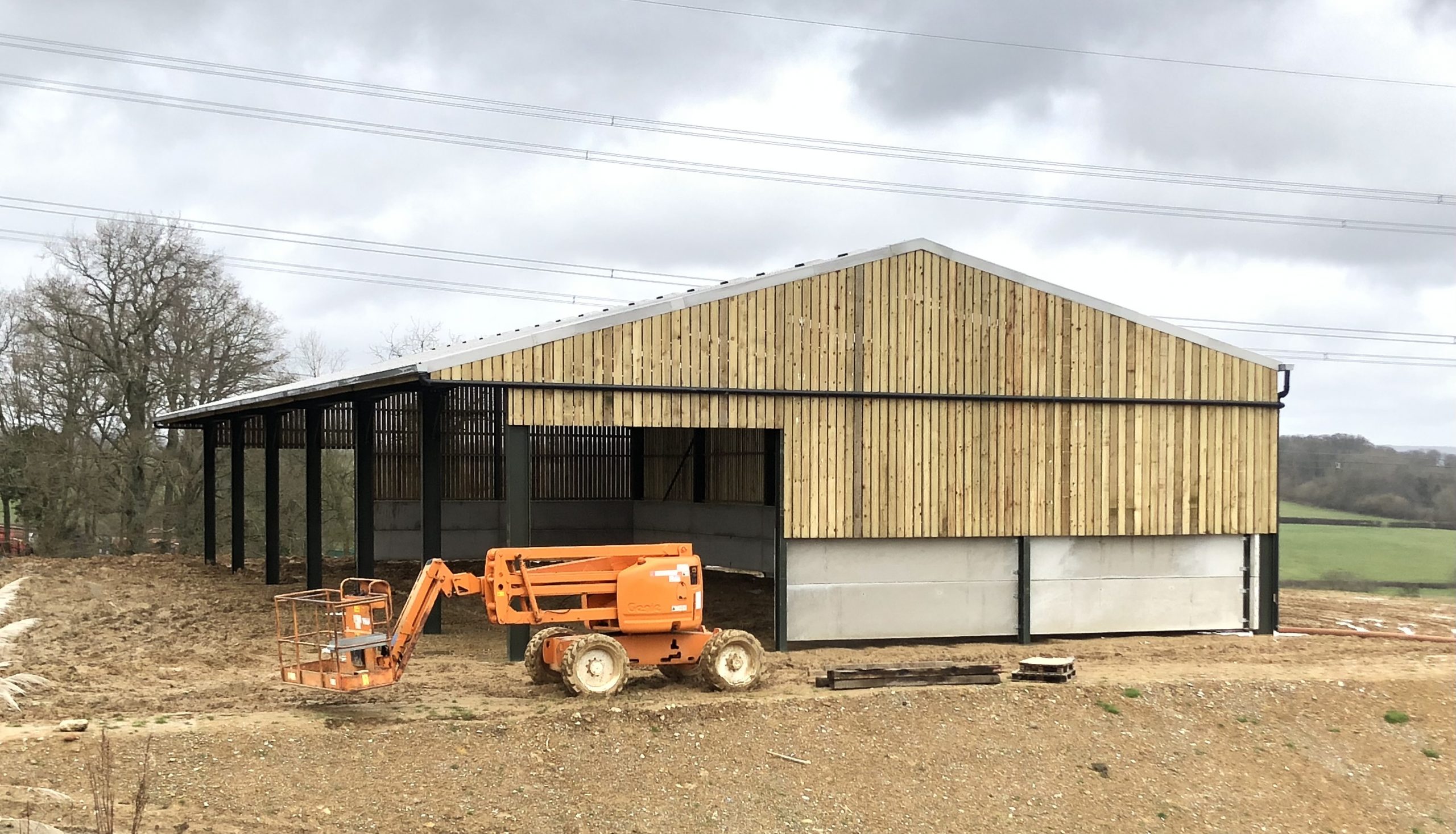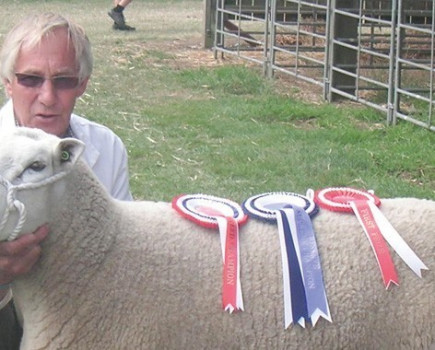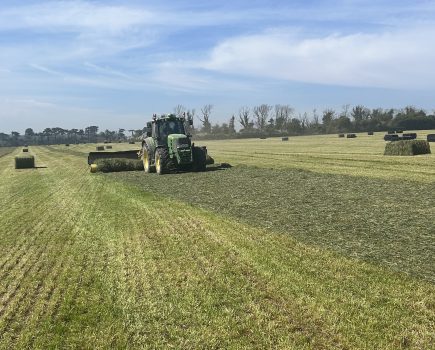It feels like spring, with flowers blooming, the smell of the wild garlic in the woods, the skylark singing overhead as I check sheep. And yet it’s changeable weather, hopefully settled by the time you read this. It’s tricky knowing what to wear, dressed for cold but when working you’re too warm and extra clothes are cumbersome.
The reality of lambing looming hit me today when I was putting in a prolapse on a ewe scanned as a triplet. I was rewarded with a shower; the capacity of a ewe’s bladder is impressive. One triplet is one too many, in my view. I’ve already had one get on its back. I’ve separated them out and have them back at the home farm, where I can keep a beady eye on them and top them up with some hard feed. The empty ewes fetched good money in market and non-pregnant ewe lambs will need to produce something next year or they’ll be going the same way.
I’m delaying getting the main flock home as grass growth is better where they are. I’ve put out some high energy blocks, and they must be content because I’m not having to replenish them very often.
I was perplexed the other day when lookering to find one lone ewe standing on the riverbank gazing sorrowfully down into the river. I was concerned because this particular character is inseparable from her friend, always grazing side by side. I was immediately worried and expected to see her mate floating in the water. She wasn’t, however, and I made my way over to the main flock, where her friend was happily grazing. They must have had a tiff. The sad one rejoined the flock, but I’ve not seen them together since. I wonder what they fell out over.
At the market recently someone was bemoaning what a terrible start to lambing they were having. I assured them: “It’s quite normal to get problems at the beginning” and someone else chipped in with: “And at the end.” Another commented: “You get problems in the middle as well, but being tired and busy you don’t have time to realise it.” Not sure how effective this conversation was in cheering up the initial speaker. There’s one sure thing about market; if you think you’ve got it bad, there’s always someone who can top your story. The effect is amazingly uplifting.
At home, we’ve finally achieved our dream of adding a new livestock building to the farmyard. We are now looking forward to making good use of this modern barn, which will provide better welfare accommodation for our cattle. We purchased a 120ft x 50ft building from Fowler & Gilbert, who were very efficient and soon got all the materials delivered.
Some of our older farm buildings were erected on a slope, which we’ve learnt from experience is not a good idea. We needed a level site for our building and Robins of Herstmonceux did a great job of creating this for us.
Then the rains arrived, thwarting our hope that we could get the building up before winter. Luckily the dry spell in February/early March created a window of opportunity. It was dry enough for Graham Izzard and his ace team (one being my nephew) to start on the construction. Anyway, suffice to say, the end result is one happy farmer. Just need to sort out the interior design and water harvesting tanks.
DEFRA’s objectives and priority outcomes are listed as:
- Improve the environment, through cleaner air and water, minimised waste and thriving plant and terrestrial and marine wildlife.
- Reduce greenhouse gas emissions and increase carbon storage in the agricultural, waste, peat and tree planting sectors to help deliver net zero.
- Reduce the likelihood and impact of flooding and coastal erosion on people, businesses, communities and the environment.
- Increase the sustainability, productivity and resilience of the agriculture, fishing, food and drink sectors, enhance bio security at the border and raise animal welfare standards.
All the above are very commendable, but I have a few concerns and questions. Why isn’t more being done to prevent raw sewage being discharged? On helping wildlife to thrive, deer numbers have driven us out of arable production and badgers are everywhere, which complicates preventing the spread of TB. Aim for net zero; great if the whole world had the same aspirations. It’s not a level playing field. Increasing sustainability and raising animal welfare; our government seems happy to let retailers import food that isn’t produced to the same standards as those imposed on the UK and is sold cheaply because they haven’t incurred higher costs. So environmental damage abroad doesn’t matter? Is this morally right?
UK farmers and growers who produce food to high welfare and environmental standards will undoubtedly be put under financial strain, and this is disheartening. It’s criminal to hear that perfectly good, productive apple orchards are being grubbed out. Storage costs have spiraled, there are labour shortages and it’s uneconomic for the grower who’s simply attempting to stay in business.
Selling at less than cost price is not sustainable. The supermarkets prefer to import, but hauling food around the world has an environmental cost. If there are food shortages, will these countries be so keen to export? If our farmers and growers have gone bust and our land is rewilded, what will the inhabitants of the UK eat?
Right now there’s a fraud investigation into large volumes of meat produced in South America being sold under a ‘Best British’ logo. Food security on imports needs improving. The Food Standards Authority should be helping UK producers, not working against them as often seems the case, particularly regarding small abattoirs. Fewer food miles, shorter food chains, more transparency and easily traceable ticks all the boxes; why is the Government not preventing the erosion of agricultural infrastructure?
I suggest that the Government’s morals are not all that they portray them to be. If they care about UK food production, they should prioritise it.
Farmers often work long hours for the love of the land. I heard recently that a four-day week increases productivity. I must run that by my husband and ask if we can implement it. I’m not sure his answer will be printable.
- New barn construction started
- Time out, water play
- This ewe expecting triplets has a prolapse, which needs dealing with
- Spring calving
- I must tell the spaniels they missed one. This pheasant is keener for food than the hoggets
- Born overnight, this one’s not camera shy
- Checking on the ewes
- The collies keep a keen eye on the sheep
For more like this, sign up for the FREE South East Farmer e-newsletter here and receive all the latest farming news, reviews and insight straight to your inbox.

